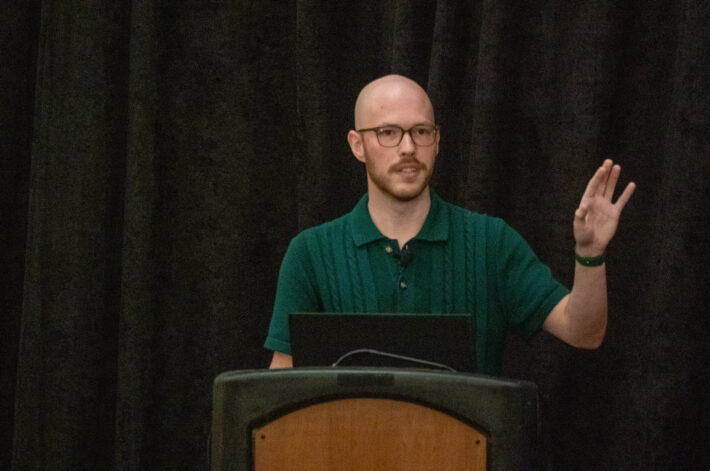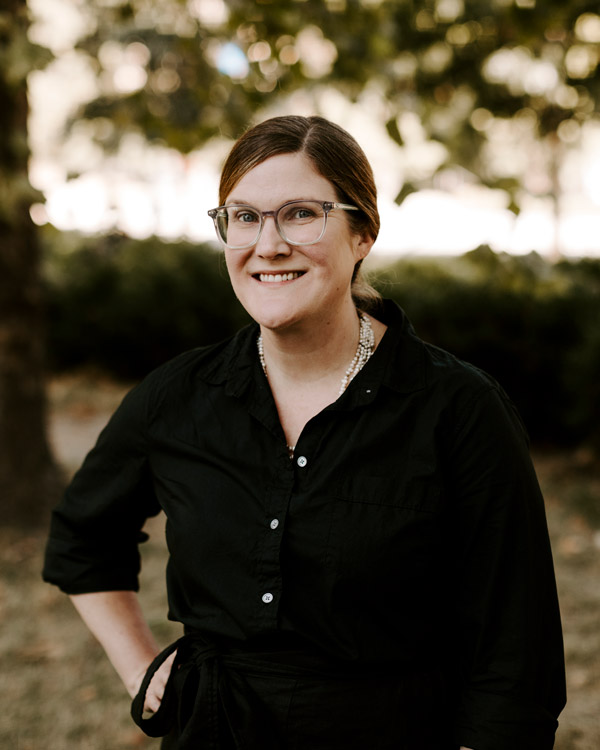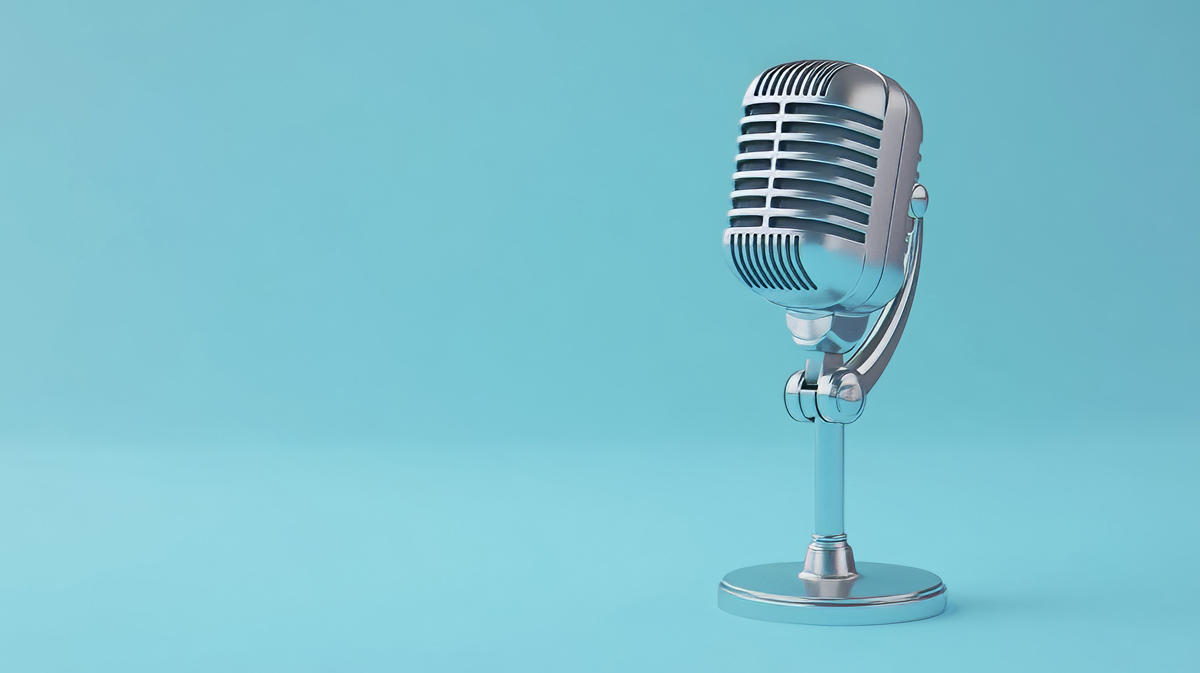Anyone can be a podcast host, and any guest can have a story.
Those are two points Gavin Kelly said he wanted the audience to learn from his presentation, “Is this thing on? Podcasting as a party of one,” during the 2024 HighEdWeb Annual Conference.
Kelly hosts “Beyond 1894,” the official podcast for Louisiana Tech University. The podcast showcases the campus community through one-on-one conversations between Kelly and Louisiana Tech faculty, students, staff and alumni. “Beyond 1894” comes out every other week and celebrated its 100th episode in June 2024.
Kelly – associate director of communications at Louisiana Tech – only has about 10% of his time to give to the podcast. So, how does a university podcast happen with limited time and resources?
“You kind of have to do what works for you without spreading yourself too thin,” Kelly said.
Kelly shared how “Beyond 1894” keeps a biweekly publishing schedule with a production team of one.
Guest selection
Kelly keeps a conversational style for “Beyond 1894,” making sure every guest feels important.
University podcast guests include:
- Faculty and staff. The podcast often hosts faculty and staff with longevity at the university. Kelly aims to represent the campus community and a range of colleges and departments.
- Students. Student guests are often in leadership positions in their organizations or schools. Kelly likes to interview students in pairs, or he invites a relevant faculty member to the interview so that they can bounce answers off one another.
- Prominent roles. Deans, presidents and university leaders who are changing roles are frequent guests.
- Calendar guests. Kelly looks at the university calendar for guests related to upcoming events.
Recording and editing
Kelly simplifies the recording and editing process to make it possible to produce the podcast in a few hours. Sessions typically take 30 minutes to an hour, with the final episodes clocking in around 20 minutes.
- Nonstop take. Each episode is recorded in one take, with cuts done in editing.
- Relaxed recording environment. Kelly uses a conference room as his recording studio, which helps put guests at ease.
- Keep the conversation casual. “Remind yourself that you’re just having a talk with somebody,” Kelly said.
- Basic audio editing. An AI transcription service creates the transcript for each episode. Kelly uses Audacity make cuts, mute the channel of the person who isn’t talking, and level audio.

Interviewing tips
Kelly focuses on having a relaxed conversation. As a podcast host, it’s important to remind yourself that the guest is probably more nervous than you are, and it’s your job to make them comfortable.
“If you’re both nervous, it’s kind of a big nervousness party,” Kelly said.
Here are his tips for a casual interview that tells the university’s story:
- “We can fix it in the edit.” Assure the guest that you can add or cut in the editing process.
- In-the-moment questions. Approach the interview with genuine curiosity. “Pretend like you’re getting to know somebody, and if something strikes you in the moment as a question, ask it,” Kelly said.
- Become your average listener. Kelly might have background on a topic as a university communicator, but for the podcast’s sake, he forgets that background during the interview. Pretending not to have deep knowledge on a topic helps ask the guest questions that will make the topic easier for the average listener to understand.
4 questions every guest can answer
Kelly asks follow-up and in-the-moment questions during the interview. He lets guests speak freely and “err on the side of rambling.”
The podcast uses four questions every guest can answer:
- Where are you from?
- How did you decide on your education?
- What career moves led you here?
- What has kept you at our university?
A conversational structure, a bi-weekly publishing schedule and a few editing tools create a podcast that tells the university story with a team of one.

About the author
Margaret Hair is the director of marketing and communications at the University of Kansas School of Social Welfare. She leads marketing and communications projects related to student recruitment, alumni relations and fundraising. For Digital Collegium, Hair is publisher and committee chair of Link Journal.

Professional development library
Paid membership with Digital Collegium provides unlimited on-demand access to the conference recordings. The Professional Development Library includes recordings from this event and other conferences.
Link Journal has covered the HighEdWeb Annual Conference since 2011. Read more articles from the 2024 conference. Explore our archives for articles about previous conference sessions.

